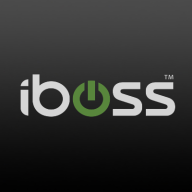


Cisco Umbrella and Fortinet FortiProxy are key players in the cybersecurity market. Cisco Umbrella has the upper hand in ease of use with its cloud-based deployment, while Fortinet FortiProxy offers exceptional customization and user-level security.
Features: Cisco Umbrella offers versatile security layers including DNS-based protection, preventing DNS-based attacks. Its single-pane-of-glass management simplifies tasks and reporting, while web content filtering adds flexibility and scalability. Fortinet FortiProxy stands out with robust traffic inspection, detailed application management, and customizable access controls enhancing security and compliance.
Room for Improvement: Cisco Umbrella could improve in third-party integration and reporting functionalities. Users have noted a need for better local traffic inspection and advanced threat analysis. Fortinet FortiProxy can enhance ease of deployment and requires more comprehensive reporting. Additional documentation and user guides would improve overall usability.
Ease of Deployment and Customer Service: Cisco Umbrella's cloud-based simplicity facilitates easy deployment and management, benefiting hybrid cloud transitions. It is backed by well-regarded technical support. Fortinet FortiProxy demands more on-premise setup, posing challenges for some organizations, yet provides highly rated customer service and technical support for complex environments.
Pricing and ROI: Cisco Umbrella offers a flexible licensing structure, perceived as more costly but delivering substantial ROI due to proactive security measures. Fortinet FortiProxy is considered cost-effective, with competitive pricing providing significant security features and performance value, appealing to budget-conscious businesses seeking quality security solutions.



iboss offers a comprehensive security platform designed for diverse use cases such as web filtering, data loss protection, corporate proxy services, and URL filtering.
iboss integrates advanced features to address dynamic security needs, leveraging its strength in SASE, ZTNA, AI initiatives, and cloud integration, while ensuring seamless operations for remote work. It excels in historical forensics, malware protection, and flexible cloud deployments. Users benefit from comprehensive traffic scanning, robust malware detection, and PaaS capabilities that reduce hardware management. An intuitive admin console ensures efficient management with content filtering and low false positives. SSL decryption enhances security, while DLP protects data in AI conversations. Deployment is rapid and scalable, allowing effortless integration with emerging technologies.
What features does iboss offer?
What benefits and ROI should users consider?
iboss finds significant application in sectors such as education, where web filtering for K-12 is crucial, and in corporate environments requiring robust proxy services and URL filtering for network security. Its adaptability is essential in scenarios demanding flexible, decentralized security frameworks, particularly for remote work setups.
Cisco Umbrella delivers rapid DNS security with over 30,000 customers, providing outstanding threat protection and handling more than 600 billion requests daily. It's recognized for high threat efficacy in the SSE domain and integrates elements like SWG, ZTNA, CASB, and more.
Cisco Umbrella is renowned for its effective DNS-layer security against ransomware and phishing. It offers flexible content filtering and integrates seamlessly with existing networks while providing single-pane-of-glass management for centralized monitoring. Its robust threat intelligence and customizable policies are central to its appeal. Users highlight room for improvement in areas like WHOIS data inclusion, malware enhancement, and reporting analytics. Integration with other threat feeds and better client support are requested for more comprehensive coverage.
What are the key features of Cisco Umbrella?Industries implement Cisco Umbrella primarily for DNS-level security, web filtering, and protecting remote employees. It strengthens cybersecurity frameworks by blocking malware and avoiding access to harmful sites. The tool is widely integrated with Active Directory and Cisco Meraki, providing consistent internet security for employees.
Fortinet FortiProxy is a secure web gateway that provides advanced web filtering, malware protection, and SSL inspection capabilities. It is designed to protect organizations from web-based threats and prevent data loss by enforcing granular policies for web access. FortiProxy is available as a physical or virtual appliance and can be deployed on-premises or in the cloud. FortiProxy uses a combination of signature-based and behavior-based detection techniques to identify and block known and unknown threats. It also includes advanced features such as sandboxing and machine learning to detect and prevent zero-day attacks. FortiProxy can inspect SSL traffic to detect and block threats hidden in encrypted traffic. FortiProxy provides granular control over web access by allowing administrators to create policies based on user identity, device type, time of day, and other factors. It also includes pre-defined categories for web filtering, such as social media, gambling, and adult content. FortiProxy can also enforce compliance with regulatory requirements such as GDPR and HIPAA. FortiProxy integrates with Fortinet's Security Fabric, allowing it to share threat intelligence with other Fortinet products and provide a coordinated response to threats. It also includes a web-based management console that provides real-time visibility into web traffic and allows administrators to quickly respond to security incidents.
Fortinet FortiProxy is a comprehensive web security solution that provides advanced protection against web-based threats and allows organizations to enforce granular policies for web access.
We monitor all Secure Web Gateways (SWG) reviews to prevent fraudulent reviews and keep review quality high. We do not post reviews by company employees or direct competitors. We validate each review for authenticity via cross-reference with LinkedIn, and personal follow-up with the reviewer when necessary.